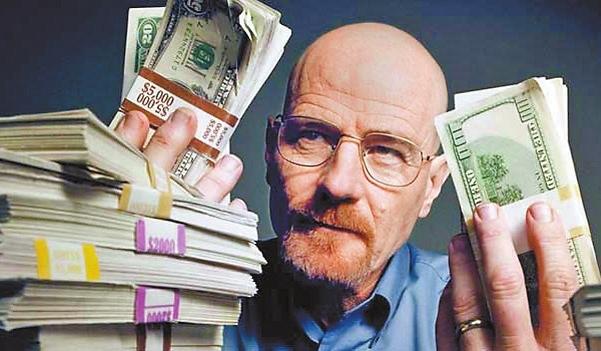
More than 3.5 million people lost their “dollar millionaire” status last year during the first fall in global wealth since the 2008 financial crisis. The number of adults with assets of more than US$1 million fell from 62.9 million at the end of 2021 to 59.4 million at the end of 2022, according to the UBS annual wealth report, published Aug. 15. The Swiss bank said global wealth was depressed by high inflation and the collapse of many currencies against the dollar. The number of millionaires in the U.S. dropped by 1.8 million to 22.7 million, but there are still far more millionaires in the U.S. than any other country. China had the second-highest number with 6.2 million. Despite the decline, the report found that there were four times as many dollar millionaires as there were at the turn of the century. In the U.K., the number of millionaires fell by 440,000 to 2.6 million, the third-largest fall behind Japan, which dropped from 3.2 million to 2.6 million. Australia had the fourth-largest decline, with 360,000 people no longer being classed as millionaires, reducing the total to 1.8 million. At the very top, the number of people with more than US$50 million each fell by 22,500 to 243,000. The richest 500 people in the world lost a combined US$1.4 trillion in 2022, according to separate research for the Bloomberg billionaires index. Elon Musk, the world’s richest person and co-founder of Tesla, lost US$138 billion in 2022, the year in which he completed his US$44 billion acquisition of Twitter. The Facebook co-founder Mark Zuckerberg, who was once one of the 10 richest people in the world, lost nearly US$81 billion in net worth and was at US$45 billion at the end of 2022. The super-rich, the reasonably well-off and poor people all had aggregate declines in wealth in 2022, according to UBS’s economists, who recorded “the first fall in net global household wealth since the global financial crisis of 2008.” The world’s privately held wealth fell by US$11.3 trillion, or 2.4%, to US$454 trillion. Average wealth per adult dropped by US$3,200 to US$84,718. The bank said: “This outcome represents a break in the almost uninterrupted expansion of household wealth this century.” It said the decline would be felt even more sharply in real terms because of soaring inflation around the world. Household finances have been squeezed by the sharp rise in the cost of everything from food to energy. The proportion of the world’s wealth held by the richest 1% declined slightly to 44.5%, reversing some of the increase in wealth inequality during the pandemic. To be part of the top 1% requires assets of at least US$1,081,342. (SD-Agencies) Words to Learn 相关词汇 【富裕的】 fùyù de well-off wealthy, rich 【陷入财务困境】 xiànrù cáiwù kùnjìng squeeze face financial difficulties caused by a large reduction in the amount of money that a person, company, or government can spend or earn 去年超350万人失去了百万(美元)富翁身份,这是自2008年金融危机以来全球财富首次缩水。 瑞士联合银行8月15日发布的年度财富报告显示,资产超过100万美元的成年人数量从2021年底的6290万人减至2022年底的5940万人。 瑞士联合银行称,全球财富缩水源于高通胀和许多货币对美元的贬值。 美国百万富翁现有2270万人,减少了180万,但美国的百万富翁数量仍然远超其他国家。中国的百万富翁数量为620万人,位居全球第二。 尽管百万富翁数量下降,但报告发现,拥有百万美元资产者的数量是本世纪初的四倍。 英国的百万富翁数量为260万,减少了44万,降幅排行第三,仅次于日本。日本的百万富翁数量从320万降到了260万。澳大利亚的百万富翁数量降幅排行第四,百万富翁总人数降到180万,减少了36万。 在最富有的阶层,资产超过5000万美元的百万富翁数量降至24.3万,减少了22500人。 彭博社亿万富翁指数的独立调查显示,世界首富500强在2022年资产缩水合计1.4万亿美元。 世界首富、特斯拉共同创始人埃隆·马斯克在2022年失去了1380亿美元,同一年他完成了耗资440亿美元的推特收购。 脸书共同创始人马克·扎克伯格曾是世界上最富有的10个人之一,他在2022年底的净资产为450亿美元,缩水了近810亿美元。 瑞士联合银行的经济学家指出,2022年超级富豪、相当有钱的人和穷人的财富总量都出现了缩水,这是“2008年全球金融危机以来全球家庭净财富的首次减少”。 全球私有财富降至454万亿美元,减少了11.3万亿美元(2.4%)。成年人的人均财富降至84718美元,减少了3200美元。 银行表示:“这一结果代表着本世纪以来家庭财富不间断扩张的中断。” 银行指出,由于全球通货膨胀飙升,财富缩水在现实生活中的感受甚至更强烈。从食物到能源等生活成本的急剧上涨让家庭财政吃紧。 全球最富有的1%的人拥有的财富比例为44.5%,相较之前略有下降,逆转了疫情期间财富不平等部分扩大的趋势。要跻身全球最富有的1%,至少必须拥有1081342美元的资产。 | 
